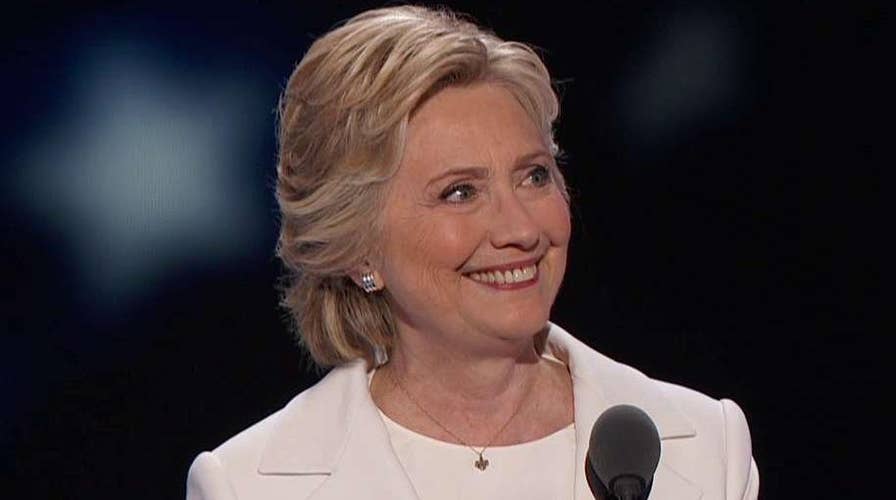Full speech: Clinton accepts Democratic nomination, Part 3
Democratic presidential nominee slams Donald Trump's business record, temperament
It’s been almost a hundred years since my grandmother, then a teenage suffragette, marched in the streets of Milwaukee for the right of women to vote.
Among the young feminists with her was a schoolmate, Goldie Myerson, who later moved to Tel Aviv, changed her name to Golda Meir and became the first (and, so far, only) female prime minister of Israel.
Golda is often cited as a precedent for a Hillary Clinton presidency. The comparison is natural, but misleading.
Golda Meir was a woman in a man’s world, the one significant female in a party dominated by men. Hillary, on the other hand, is now the leader of a Democratic Party whose power—real and symbolic—has largely passed into the hands of women.
Golda Meir was a woman in a man’s world, the one significant female in a party dominated by men. Hillary, on the other hand, is now the leader of a Democratic Party whose power—real and symbolic—has largely passed into the hands of women.
This was on display, in matters large and small, from the start of the party convention in Philadelphia. The opening invocation was delivered by Doctor Cynthia Hale. Baltimore mayor Stephanie C. Rawlings-Blake gaveled in the proceedings. Congresswoman Marcia Fudge chaired the convention in place of the discredited head of the Democratic National committee, Debbie Wasserman-Schultz. Party stalwart Donna Brazile was named interim chair of the DNC.
When furious Bernie Bros threated to upset the convention on opening night, comic Sarah Silverman took the stage and silenced hecklers with a cuttingly accurate squelch: (“To the Bernie or bust people. You’re being ridiculous”). Sanders himself was one of three featured speakers on the first night but he looked less like a historic figure than a historical artifact.
The stars of the convention’s first night were two powerful women, keynote speaker, Senator Elizabeth Warren and First Lady Michelle Obama.
Warren ripped into Donald Trump with undisguised contempt and scorn. “What kind of man cheats students, cheats investors cheats workers?” she demanded. “I’ll tell you want kind of man. A man who must never be president of the United States!” This was blatant man- baiting, and it won the Senator loud cheers from delegates--not all of them women--infuriated by Donald Trump’s dismissive attitude toward women who are not members of his family.
Michelle Obama closed the show, that first night, with a strong and gracious speech that put the convention—and the new Democratic Party—in historical perspective. “Because of Hillary Clinton,” she said, “my daughters, and all our sons and daughters, now take it for granted that a woman can be president of the United States.”
But Hillary doesn’t deserve all the credit. Her nomination isn’t a one-off or a strictly personal achievement. Winning politics takes a village, and women comprise a majority of the Democratic village. In presidential elections, more than half vote for the party. They have earned their leadership the old fashioned way: At the ballot box.
The highest ranking Congressional Democrat is Nancy Pelosi, minority leader in the House of Representatives. Three of the four senators from the two leading Democratic states--New York and California--are women (so, for that matter, are three of the four Supreme Court Justices appointed by Democratic presidents). Women now run the party machinery, set its agenda, control its private deliberations and determine its public image.
This female ascendency didn’t happen overnight, but it became clearly visible in Philadelphia.
It is too early to say how long it will last or how it will affect American the 2016 election and beyond. But there’s one thing I know for sure. It would have tickled the hell out of my grandmother.

